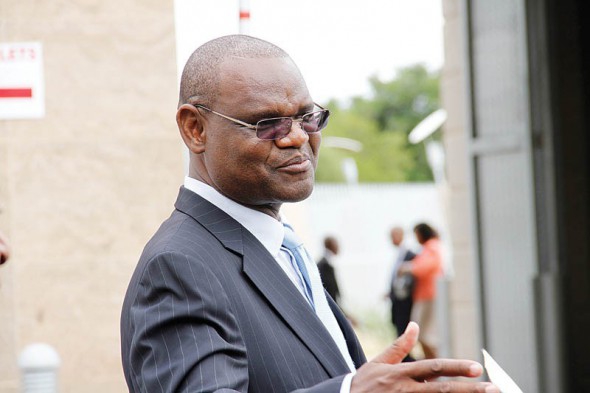The Governor of the Bank of Botswana, Moses D Pelaelo, accompanied by Senior Bank staff, participated in the Spring Meetings of the International Monetary Fund (IMF) and World Bank (WB) in Washington DC (USA) from April 19 – 22, 2018. The Governor took part in the meetings of the International Monetary and Financial Committee (IMFC), IMF’s Africa Group 1 Constituency, which comprises 23 Sub-Saharan African (SSA) countries and the Africa Consultative Meeting with Ms. Christine Lagarde (Managing Director of the IMF).

The meetings deliberated on, among others, recent economic and financial developments, prospects for global economic growth, challenges and the related policy responses. It was observed that the global economic activity continues to strengthen and is expected to maintain near-term momentum. In the near-term, risks appear to be broadly balanced but skewed to the downside in the medium-term, especially with respect to rising financial vulnerabilities, increasing trade and geopolitical tensions and the historically high global debt, which threatens global growth prospects.
Global growth is projected to increase from 3.8 percent in 2017 to 3.9 percent in both 2018 and 2019; revised upwards to reflect increased global growth momentum and the expected impact of the recently approved U.S. tax policy changes. The corresponding growth rates for SSA are 2.8 percent, 3.4 percent and 3.7 percent. The IMF indicated that global growth has further strengthened and is increasingly broad-based, with notable upside risks in Europe and Asia. The key drivers of global economic expansion have been a strong rebound in investment and trade.
With regard to policy priorities, the emphasis was on expeditious use of the current window of opportunity to advance policies and reforms that would sustain the current upswing, enhance resilience and raise medium-term inclusive growth. In turn, the structural reforms should aim to raise productivity, potential growth and employment, while providing support to those bearing the cost of adjustment. Furthermore, the meetings highlighted theimportance of timely, full and consistent implementation and finalisation of the financial sector reform agenda, towards further strengthening financial sector resilience.
Equally important is the need to ensure that policies also enhance inclusion,in order to share widely the gains from technology and economic integration, while managing the associated risks. The IMFC underscored the need for “fiscal policy to be flexible and growth-friendly, rebuild buffers where needed, avoid procyclicality, create space to invest in infrastructure and work skills, and ensure that public debt as a share of GDP is on a sustainable path.” In this regard, policy initiatives should continue to focus on broadening the tax base, mobilising revenue and improving debt management while sustaining efforts towards diversifying economies and bolstering potential output, strengthening macroprudential frameworks and making progress towards reaching the 2030 Sustainable Development Growth (SDGs).
The Governor also attended several briefings and seminars, including on the African Economic Outlook; Joining the Digital Revolution: Leveraging Technology in Small Medium Income Countries, where he presented a brief overview of Botswana’s experience; Public Investment Efficiency in Sub-Saharan African Countries; and Flexible Inflation Targeting- Advancing the Frontiers Monetary Policy; as well as a workshop on How to Deal with Current Fiscal Challenges in Southern African Customs Union (SACU). Furthermore, the Governor discussed issues specific to the Bank and the economic and policy developments in Botswana bilaterally with relevant departments of the International Monetary Fund.

